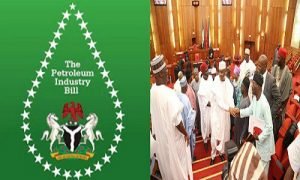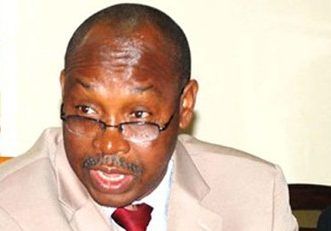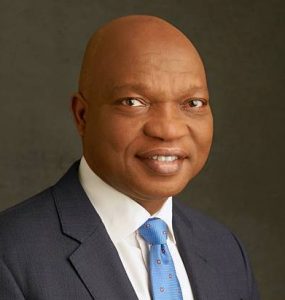*Experts say ‘it’s better late than never’ *Stakeholders flay 3/5% for host communities

Chuks Isiwu, OpeOluwani Akintayo & Mkpoikana Udoma
Lagos — The recent passage of the Petroleum Industry Bill, PIB, by Nigeria’s 9th National Assembly after 13 years has been greeted with an outburst of emotions by operators and other oil and gas industry stakeholders.
Both chambers of the National Assembly concurrently passed the bill on Thursday, July 1. The Senate passed the bill after a clause by clause consideration of the report of its joint committee on Petroleum (Upstream, Downstream and Gas). The lower chamber of the National Assembly, the House of Representatives, was to pass the bill less than an hour later afteradopting all the 318 sections of the bill.
After the passage, the speaker of the House, Mr Femi Gbajabiamila, lauded the lawmakers for the achievement, describing it as significant in the history of the National Assembly.
Earlier, the Chairman of the House Adhoc Committee on the PIB, Hon. Mohammed Mongunu, who moved the motion for the endorsement of the bill, stated that in passing the Bill, the House will enshrine its name in gold.
In the Senate, the president, Dr Ahmed Lawan, said, with the passage of the bill, the Senate have achieved a major legislative agenda. He said: “The demons (of PIB) have been defeated in this Chamber. We have passed the bill”.
The Senate, in passing the Bill, approved 3 percent for the oil host communities as part of the Host Community Trust Fund while the House of Representatives endorsed 5 percent for the Fund.
The PIB provides that all exploration of frontier basins would fall under the purview of the Upstream Regulatory Commission. It also provides that 30 percent of profits accruing from oil and gas operations by the Nigeria National Petroleum Corporation, NNPC, would be set aside for exploration of oil in the frontier basin. The proposed law stipulates that the 30 percent profits from oil operations will be in an escrow account and if not used, would be returned to the treasury.
Reacting to the historical development, the Executive Secretary, Nigeria Extractive Industries Transparency Initiative, NEITI, Dr. Orji Ogbonnaya Orji, described the decision of the Senate and the House of Representatives to consider the Bill as priority, resulting in its eventual passage, as bold, courageous and progressive. This is given the challenges the bill had passed through in its legislative journey.
Mr. Bank-Anthony Okoroafor, a former Chairman of the Petroleum Technology Association of Nigeria, PETAN, and Managing Director of Vhelbherg, an indigenous oil firm, said the passage of the PIB and the expected assent by Mr. President would help to bring the country’s oil and gas industry back on track.
Some industry experts said though not a perfect document, the bill was welcome. They also stated that despite the over one decade delay in the passage of the bill, it was “better late than never”.
NEITI says new PIB will entrench transparency, accountability
According to Orji, “NEITI as an agency set up to enthrone transparency and accountability in the management of extractive industries in Nigeria, has demonstrated genuine and legitimate interest in the PIB from the onset. NEITI’s interest is in view of the urgency and strategic importance of a new law to replace the existing archaic legislations that have aided huge revenue losses, impeded transparency, accountability and investment opportunities in the nation’s oil and gas industry”.
Before the passage, NEITI boldly alerted the nation through a special Policy Brief “The urgency of a new petroleum sector law” that the current stagnation of investment opportunities in the Petroleum Industry was as a result of the absence of a new law for the sector, adding that the delay had led to huge revenue losses in terms of investment to the tune of over $200billion, with over $10.4 billion and N378.7billion lost through under-remittances, inefficiencies, theft or absence of a clear governance framework for the oil and gas industry.
However, with the new governance law now passed, the NEITI Executive Secretary said he is optimistic that these huge revenue losses to the nation as a result of process lapses and outright stealing, will be strictly checked if not eliminated.

Dr. Orji expressed the hope that the PIB, when assented to by the president, will provide a dynamic governance framework required to re-position the petroleum industry to fully embrace competition, openness, accountability, professionalism and better profit returns on investments to both companies and government.
He added that NEITI and its multi-stakeholders are encouraged that the National Assembly in this particular instance threw politics aside and dealt with the PIB issue with the attention it deserved in overall public interest.
The Executive Secretary also commended the media, the civil society, development partners, industry, stakeholders and experts who have followed the bill in the National Assembly for their valued contributions to what has been achieved so far.
It is beginning of reform expected in oil industry – Experts
Other experts who spoke to SweetcrudeReports on telephone also expressed delight at the passage of the Bill.
The managing director of the indigenous oil company Vhelbherg, Mr. Okoroafor, said the passage of the PIB and the expected assent by the president would help to bring the country’s oil and gas industry back on track.
Okoroafor said the passage of the bill would improve investor confidence as there would be clarity on the fiscal terms of the industry.
“It brings confidence and stability; so, it is a move in the right direction. I say well done to the Senate and House of Representatives for this giant step,” he added.
The National Operations Controller, Independent Petroleum Marketers Association of Nigeria, IPMAN, Mr. Mike Osatuyi, said the passage of the PIB into law would mark the beginning of the repositioning of the oil and gas industry.
“If the president assents to it, then that is the beginning of the reform that we have been expecting in the oil and gas industry. It is the beginning of deregulation in the downstream sector,” he said.
He said the passage of the PIB would allow market forces to determine of petrol prices and curb smuggling of the product.
Outgoing Director-General, Lagos Chamber of Commerce and Industry, Dr. Muda Yusuf, described the PIB as a major instrument of reform in the oil and gas sector, with a number of significant implications for the sector and the economy as a whole.
National President, Petroleum Products Retail Outlets Owners Association of Nigeria, Billy Gillis-Harry, described the passage of the bill as a big blessing for Nigeria.
According to him, through the bill, a deregulated downstream oil sector would be achieved, adding that this would boost the fortunes of the country and improve the Nigerian economy.
It is not celebration time yet – PANDEF
However, the Pan Niger Delta Forum, PANDEF, said it was not time for the oil bearing region to celebrate. PANDEF’s spokesman, Ken Robinson, said the forum would like to take a look at the version of the PIB that was endorsed before responding to it.
Robinson added that it would be unnecessary to begin to celebrate when President Muhammadu Buhari had yet to give his assent to the bill.
He said: “We like to reserve our comment and see the version they passed, whether they accommodated the input made by host communities – those suffering the impact of oil exploration in the Niger Delta and not benefiting from the system.
“We will see whether the input made by the people is accommodated. It is not time to celebrate; if the National Assembly has passed it and Mr President does not assent to it, then it remains with them.”
The forum’s spokesman said he was not sure that the current National Assembly would have the drive to override the president if he (Buhari) refused to assent to the bill.
Stakeholders flay 3/5% for host communities
Also reacting to the passage of the PIB, stakeholders and industry experts frowned at the reduction of host community funds from 10 percent as proposed by Niger Delta leaders to 3 percent.
According to Executive Director of Health of Mother Earth Foundation, Dr. Nnimmo Bassey, 3 or 5 percent to host communities was not commensurate with the environmental and health challenges caused by oil and gas exploration and exploitation.
“Finally we have the PIB after such a long dragging of feet. We recognise that one of the factors that made the movement to this passage so sluggish is the fact that IOCs wished to ensure that their own interest is paramount in any legal architecture for the sector. That is the sad reality.
“3% of profits going to host communities is a crumb considering how much sacrifice communities have made over the years — including the deaths, the health issues and the monstrous ecological devastation.
“In the draft, IOCs have the prerogative of defining who a Host Community is. If oil companies decide who is a host community and who sits on the board that decides how the funds are to be used, then we can expect more divisions and instability in the region. Such an arrangement is unacceptable, is colonial and unhelpful,” Bassey said
For a business and financial analyst, Mr. Ignatius Chukwu, Nigeria should run with the current PIB as passed by the National Assembly, before oil become less relevant, since the PIB remains the only way to allow more investments in the sector.
Chukwu, who also frowned at the ‘insignificant 3 percent’ earmarked in the bill for host communities, however, explained that it was better than nothing.
He said: “The consensus in the industry is that we have no choice, no luxury of time not to accept this. Crude is almost gone, oil companies at global level are transforming to energy companies, fossil oil is gone, gas has about a decade to flourish. So, no time for good or bad PIB.
“Host community aspect is the most sensitive but 3% from every oil company’s capital budget is better than nothing.
“Remember, 1% on same capex already goes to the NDDC, 1% of contracts goes to Nigerian Content Board, FG remits to NDDC, 13% over all revenue goes to states, all GMOUs remittances go to Cluster Boards, etc. We can manage with these for now, if local accountability is there.
“The real gain is in freeing the NNPC to be a regulator while another national oil company will be an investor or operator. Minister to have less power. We can always amend it along the journey, but it’s good to start, after 21 years.”
Similarly, the Petroleum and Natural Gas Senior Staff Association of Nigeria, has also commended the passage of the Bill, but regrets that the issue of host communities was politicised.
PENGASSAN Chairman, Port Harcourt Zone, Azubuike Azubuike, also explained that investments in the petroleum sector would not be as massive aa envisaged many years ago due to alternative energy sources.
“It’s a welcome development after over 20years of lying in the National Assembly. There will always be a room for amendment.
“One of the essence is to make our national oil company to run like a commercial venture and it will also help to expand frontier explorations.
“The issue of host communities was politicised. Host communities demanded for 10percent. One of the things that stalled the passage of the PIB all these years has been the issue and definition of host communities.
“Despite the attractive fiscal policy, investments may not be as massive as we had envisaged many years ago due to alternative sources of energy.
“However, it is better late than never anf there will be room for improvement on the laws.”
For an environmental justice campaigner, Fyneface Dumnamene Fyneface, passage of the PIB is a welcome development, as it remains a good start for the petroleum industry in Nigeria.
Fyneface who is also the executive director of Youths and Environmental Advocacy Centre, called on President Muhammadu Buhari to give assent to the Bill without furtherdelay.
“The passage of the PIB by the National Assembly after donkey years of its abandonment is a welcome development and a success of advocacies of civil society organizations, communities and other stakeholders in the country.
“Although the 10% demanded by the host and oil bearing communities in the Niger Delta was not approved but a paltry 3%, it is better than none and I am optimistic that it would improve in the future and a better starting point.
“The PIB as so passed may not be a perfect regulation as hoped but it remains a good start for the petroleum industry in Nigeria.
“So, while I congratulate all the stakeholders including the 9th National Assembly for this bold step of passing the PIB that has been in the National Assembly since 2008, I called on President Muhammadu Buhari, to sign the Bill into Law without delay.”
The PIB was first introduced into the National Assembly in 2008 as an executive bill by then president, Umaru Musa Yar’Adua.
IOCs pushed for urgent passage

Weeks before the passage of the PIB, international oil companies, IOCs, operating in Nigeria called on the National Assembly to ramp up efforts at passing the bill.
Managing directors of Shell, Total and ExxonMobil, among others, who spoke at the CEO Roundtable session at the 2021 Nigeria International Petroleum Summit, NIPS, in Abuja, said passage of the bill would create the biggest enabling environment needed by operators in the country’s oil and gas sector.
Their reactions came following the announcement by President of the Senate, Ahmed Lawan, that the National Assembly would pass the bill before the end of the month.
Lawan spoke at the opening session of the NIPS3 .
“Nothing pleased me as much as seeing both the Senate president and the Speaker of the House here to give very firm commitments about trying to pass the PIB this month,” Chairman, Shell Companies in Nigeria/Managing Director, Shell Petroleum Development Company, Osagie Okunbor said.
He added: “That’s probably the big one in terms of enabling environment, it provides the kind of stability we need. But then we also need all the other issues that we have discussed severally, in terms of sanctity of contracts, stable policies and collaboration.”
Managing Director and Chief Executive Officer, Total Nigeria Exploration and Production, Michael Sangster, said the resolution by the National Assembly was encouraging, urging the lawmakers to pass the bill.
He said: “Obviously, I’m very encouraged to hear what’s being said by the Senate president, the Speaker of the House and the GMD (Group Managing Director) of NNPC on the PIB.
“It is a good, strong, win-win, forward-looking PIB, which encourages new investments in the industry and again will help to develop local content and bring it up to a higher level.”
On his part, the ExxonMobil Nigeria boss, Richard Laing, said it was wonderful to see the progress the PIB has made and added that the bill would make Nigeria attractive to investments.
He, however, noted that there was a need for competitiveness in the oil sector and stated that issues around security and sanctity of contract should be fixed to make Nigeria suitable for investments.
Oil communities demanded big changes
About a week before the eventual passage of the PIB into law, there were fears that the long-awaited bill may suffer fresh delays over new demands by leaders of oil producing states for an upward review of the Host Community Trust Fund for oil-bearing communities in the Bill from 2.5 percent to 10 percent.
A report by Reuters said a meeting in Abuja saw the National Assembly members from the South South press hard their demands to increase their share of petroleum produced in their regions to 10 percent – up from 2.5 percent, and that this could stall progress on the Bill and push its passage till late this year.
The outcome of the meeting is in line with the position of the South-South Governors’ Forum, which had earlier in March this year sought an upward review of the 2.5 percent prescribed in the proposed law to 10 percent.
Other demands by the leaders at the Abuja meeting are proposals to publicly sell the shares of the Nigerian National Petroleum Corporation, NNPC, and the implementation of market-based prices for gas to power.
Communities in Lake Chad region and the middle or north central region of the country are also seeking a greater share of oil revenues, Reuters said, quoting unnamed four sources.
SweetcrudeReports reported that while canvassing for a review of the Host Community Trust Fund from 2.5 to 10 percent earlier in March this year, the Chairman of the South-South Governors’ Forum and Governor of Delta State, Ifeanyi Okowa, said: “We took up the issue of the PIB, which is already before the National Assembly. And having compared notes, we are of the view that while we welcome the Host Community Trust Fund, we do believe that the 2.5 per cent that is appropriated in that bill is inadequate.
“We have discussed with our people and collectively as leaders, we urge the National Assembly to increase the provision from 2.5 to 10 per cent in the best interest of our communities and the nation.”
The governors were of the view that the communities would protect Nigeria’s oil infrastructure better if adequately taken care of.
Follow us on twitter



